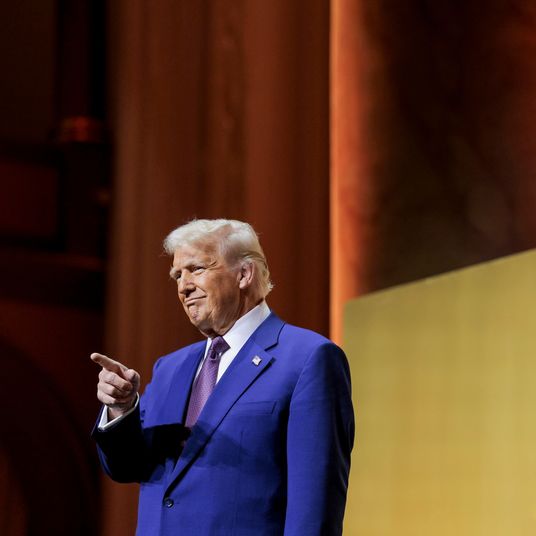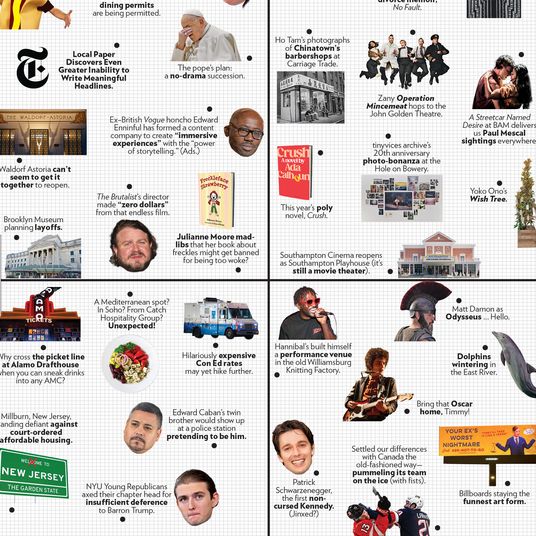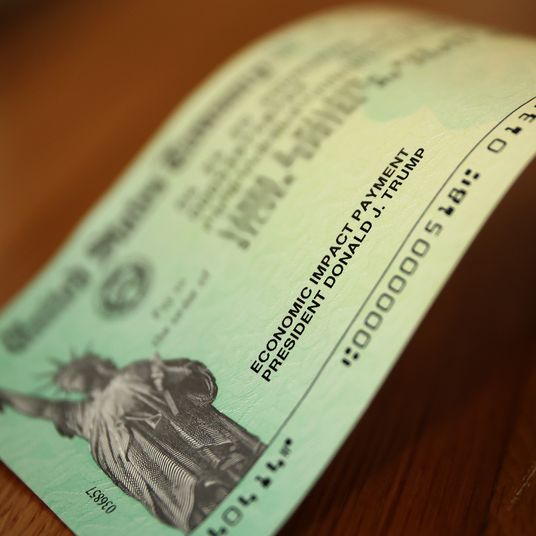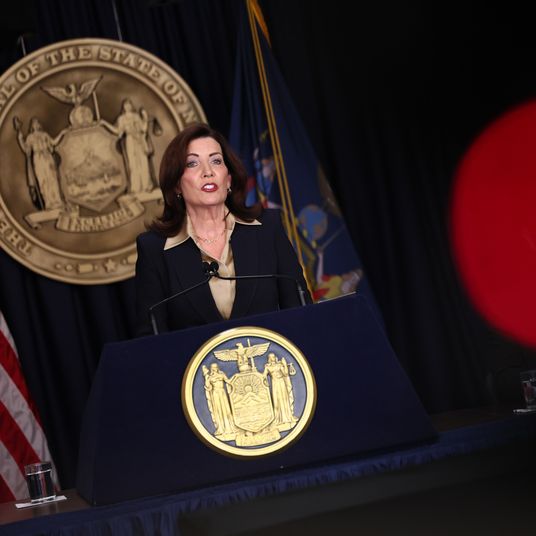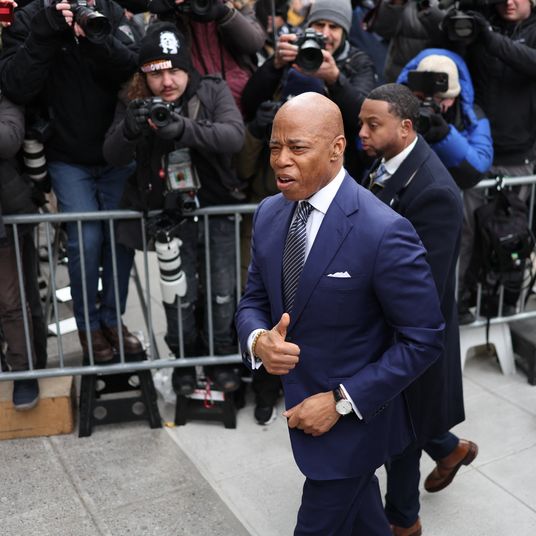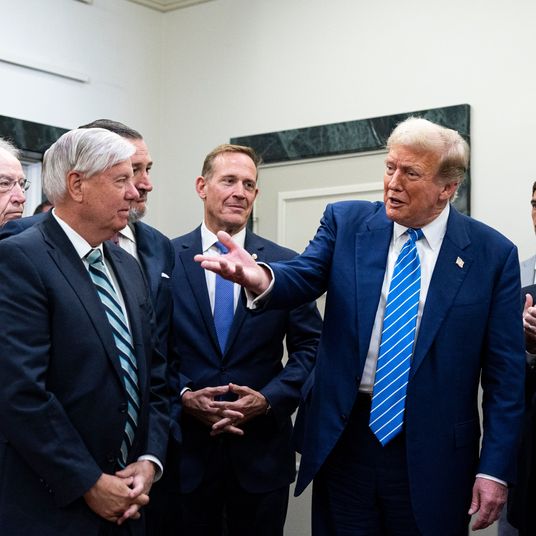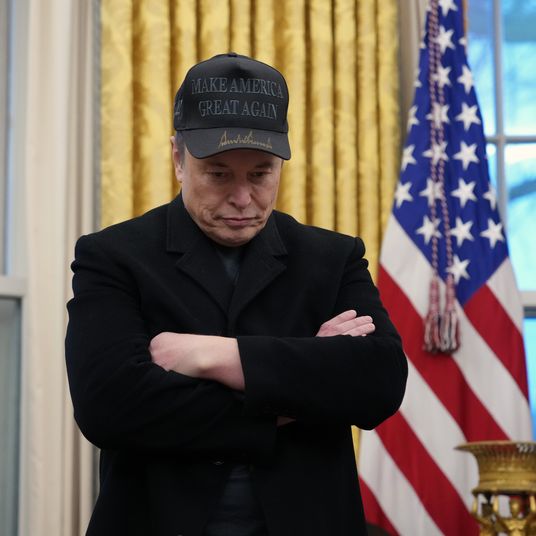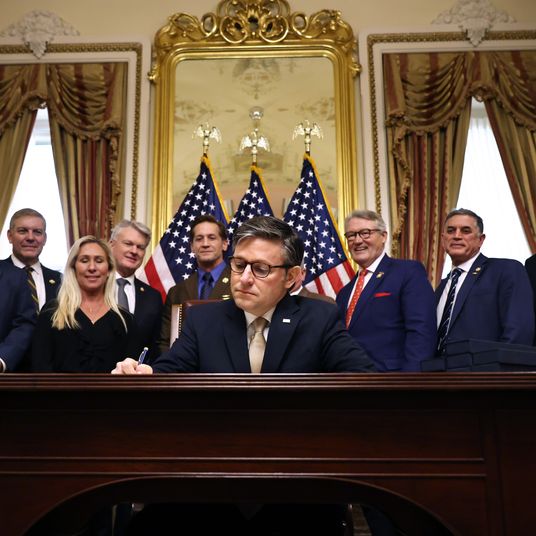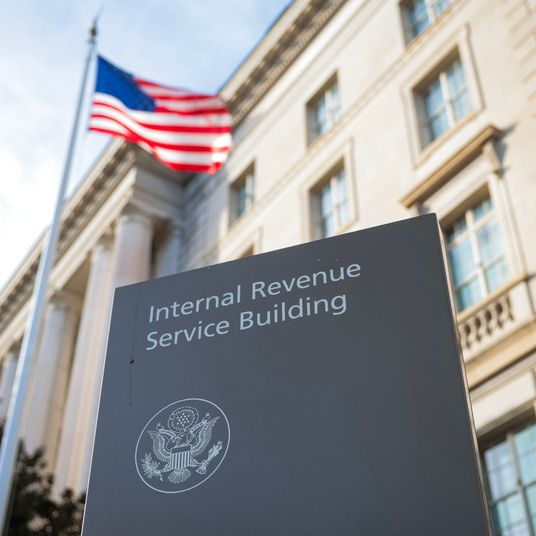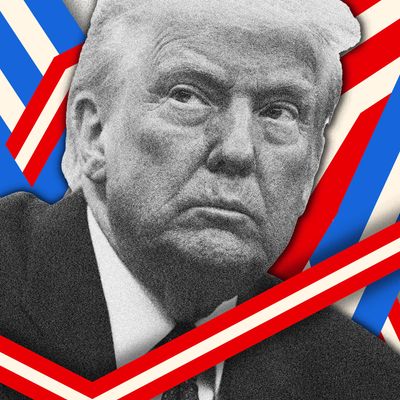
During the first month of his second term, Donald Trump’s popularity started out mildly positive but has slowly eroded, according to the FiveThirtyEight averages. As of January 24, his job-approval ratio was 49.7 percent positive and 41.5 percent negative. As of Thursday, it’s 48.7 percent positive and 46.2 percent negative, which means his net approval has slipped from 8.2 percent to 2.5 percent. The very latest surveys show a negative trend, as the Washington Post noted:
Trump’s approval ratings this week in polls — including the Post-Ipsos poll and others from Reuters, Quinnipiac University, CNN and Gallup — have ranged from 44 to 47 percent. In all of them, more disapprove than approve of him.
That’s a reversal from the vast majority of previous polls, which showed Trump in net-positive territory.
Given all the controversy his actions have aroused, that may not be surprising. But he has some vulnerabilities behind the top-line numbers, mostly involving ideas he hasn’t fully implemented yet.
His proposals tend to be popular at a high level of generality but much less popular in some key specifics. For example, a February 9 CBS survey found 54 percent supporting his handling of the Israel-Hamas conflict, but only 14 percent favoring his idea of a U.S. takeover of Gaza. Similarly, a February 18 Washington Post–Ipsos poll found 50 percent of respondents approving of his handling of immigration, but only 41 percent supporting the deployment of local law enforcement for mass deportations, and only 39 percent supporting his push to end to birthright citizenship for children of undocumented immigrants.
Across a broad range of polls, Elon Musk’s assault on the federal bureaucracy is relatively unpopular. A February 19 Quinnipiac survey found 55 percent of registered voters believe Musk has too much power. An Emerson poll gave Musk a 41 percent job-approval rating, and an Economist-YouGov poll gave him a 43 percent favorability rating.
But by far Trump’s greatest vulnerability is over his management of an economy where renewed signs of inflation are evident, and where his policies, once implemented, could make conditions worse. Already, his job-approval ratings on managing the economy are slipping a bit, as a February 19 Reuters-Ipsos poll indicated:
[T]he share of Americans who think the economy is on the wrong track rose to 53% in the latest poll from 43% in the January 24–26 poll. Public approval of Trump’s economic stewardship fell to 39% from 43% in the prior poll …
Trump’s rating for the economy is well below the 53% he had in Reuters/Ipsos polling conducted in February 2017, the first full month of his first term as U.S. president.
And a mid-February Gallup survey found 54 percent of Americans disapproving Trump’s handling of the economy and 53 percent disapproving his handling of foreign trade. More ominous for Trump if the sentiment persists is that negative feelings about current economic conditions are as prominent as they were when they helped lift Trump to the presidency. The WaPo-Ipsos poll noted above found that 73 percent of Americans consider the economy “not so good” or “poor,” with that percentage rising to 76 percent with respect to gasoline and energy prices and 92 percent with respect to food prices.
Republicans and independents will for a time share Trump’s claims that the current economy is still the product of Joe Biden’s policies, but not for more than a few months. A particular controversy to watch is Trump’s tariff wars and their potential impact on consumer prices. As the CBS survey showed, sizable majorities of Americans already oppose new tariffs on Mexico, Canada, and Europe, with tariffs on China being an exception to low levels of support for that key element of Trump’s economic-policy agenda. And the same poll showed 66 percent of respondents agreeing that Trump’s “focus on lowering prices” is “not enough.”
It’s possible that in his final term in office, Trump won’t care as much about popularity as he once did. But Republicans facing midterm elections where history says they are likely to lose ground may feel otherwise.






